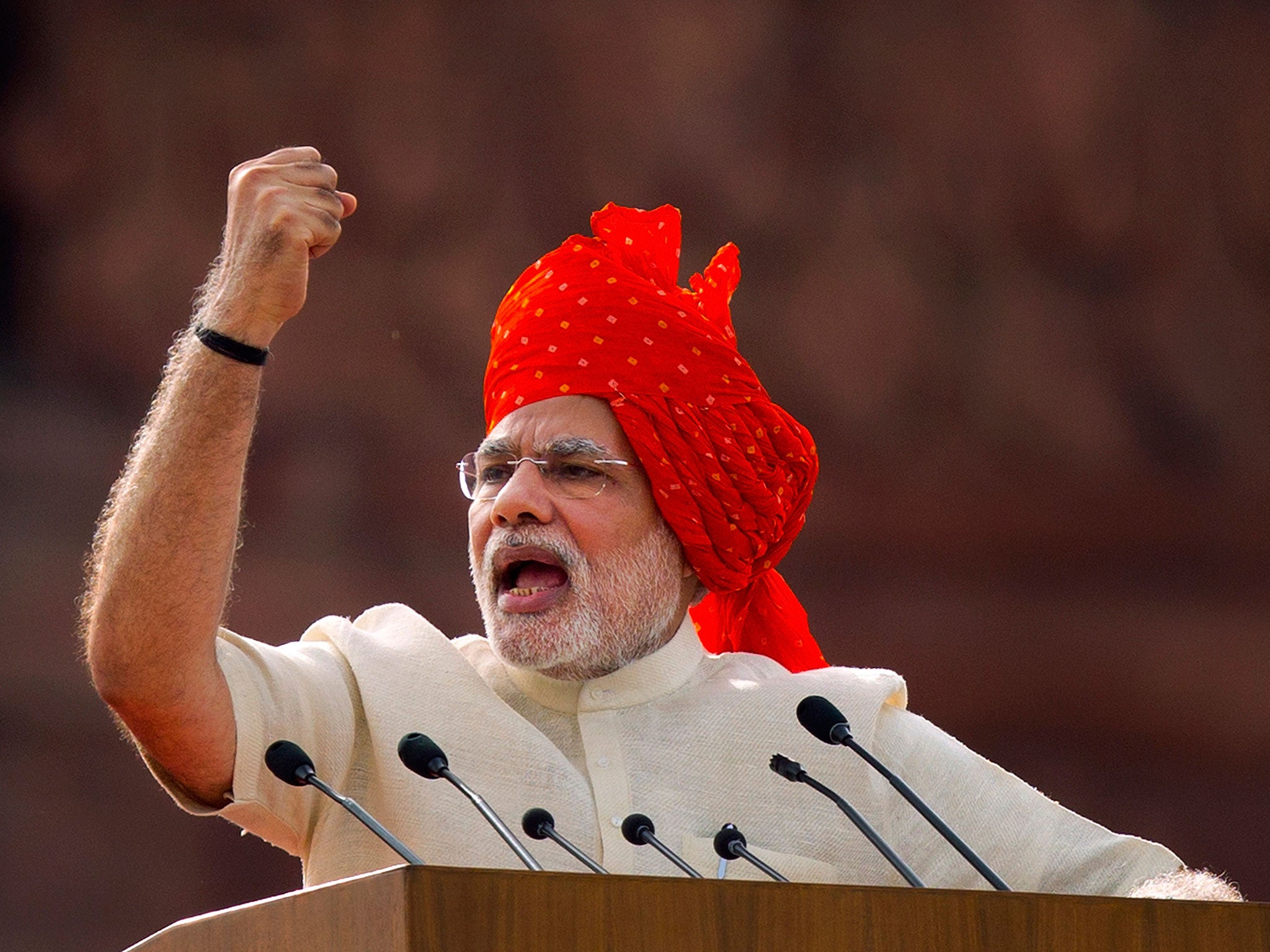Narendra Modi and Nick Clegg have more in common than you might think
By all accounts, both men are fully committed to tackling climate change


“The underlying spirit between human beings and the Earth is that of a mother-son relationship,” Narendra Modi, who was then the chief minister of Gujarat, said in 2010, at the launch of a book he had written about the environment. He added: “I have always believed in the complementary relationship between human beings and nature.”
Four years on, Mr Modi is now Prime Minister of India and issues of climate change and the environment are receiving national and international attention. After years during which the previous government had a “go slow” policy when it came to international agreements that sought to limit emissions, Mr Modi’s government appears to be beginning to listen.
That, at any rate, was the understanding of a British delegation which visited India this week.
“Until the Modi government, India was getting in the way of moving forward, along with countries such as China, Saudi Arabia and Brazil,” said Ed Davey, the Secretary of State for Energy and Climate Change, who this week endured record August temperatures in Delhi to join the delegation, led by Nick Clegg. “The new government seems quite different in its approach.”
Mr Davey said that in Gujarat Mr Modi had achieved not just economic success, but climate change success. He had overseen growth rates of 10 per cent while at the same time investing in solar, wind and water security.
Mr Davey said Gujarat was now home to one of the biggest solar farms in Asia. “Not only does he walk the walk, but he has a climate change department.”
India, with a population of more than 1.2 billion, is estimated to be the world’s third overall producer of CO2, behind China and the US. Yet per capita, it ranks 133rd, ahead of Armenia but behind the Marshall Islands.
For more than a decade after the signing of the Kyoto agreement, India refused to enter discussions on binding limits, saying it would only do so once the West had reduced its own emissions to similar per capita levels. Experts estimated that could take more than 20 years.
Asked if he believed Mr Modi’s government had changed India’s policy on refusing to discuss such issues, Mr Davey said: “I think he gets that [tackling] climate change is not an inhibitor to growth.”
One of several environmental issues on which Britain and India could work together is the effort to clean up the sacred Ganges River. At a reception in Delhi on Monday, Mr Clegg said that the issue had come up.
Mr Clegg mentioned Britain’s own efforts to clean the admittedly much shorter River Thames, a waterway that was once effectively dead as it passed through London but which is now home to fish, wild birds, and on rare occasions northern bottlenose whales.
He said the challenge facing India in regard to the Ganges was far tougher, but that it was possible Britain could help Delhi’s efforts.
The Department of Energy and Climate Change said that Britain and India were always working to “increase long-term collaboration” when it comes to “policy, regulatory areas and offer commercial opportunities in renewable energy”, and that a memorandum of understanding between the two countries, currently being discussed, would help to “formalise this relationship”.
Environmentalists in India share the view that Mr Modi is committed to investment in renewable energy as a means of providing energy to than 600 million Indians who have either no electricity or can only access it for a couple of hours a day. But they said that Mr Modi was also committed to non-renewable sources. Vinuta Gopal, of Greenpeace India, said: “He has also shown a commitment to expanding coal power.”

Join our commenting forum
Join thought-provoking conversations, follow other Independent readers and see their replies